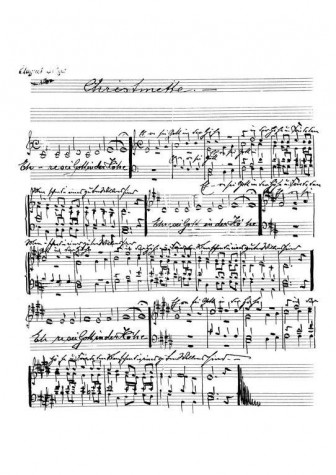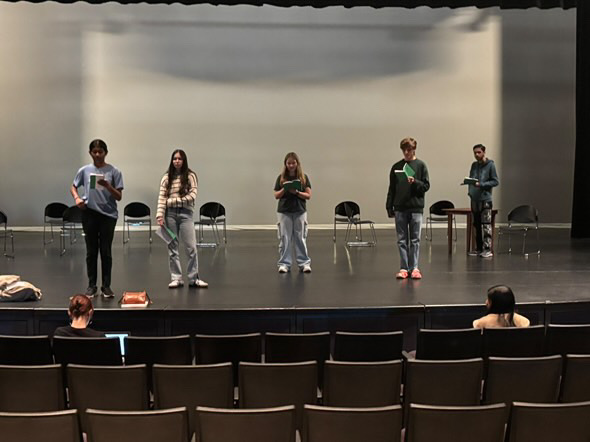Instruments Inspiring Intelligence

The complexity of rhythms and notes that must be processed and performed are akin to a foreign language.
Many people have likely heard of the so-called “Mozart Effect” – the theory that listening to classical music on a regular basis can, in essence, make you more intelligent. While this is not entirely the case, recent studies have shown that learning to play musical instruments really does lead to improved mental function. These benefits cover areas such as academic ability, social skills, and even character traits such as discipline and concentration.
First, playing music is akin to setting off fireworks in your brain, according to one TED-Ed video. Live neurological studies demonstrate that playing music engages practically every area of the brain at once, especially the visual, auditory, and motor cortices. By practicing in a disciplined and structured way, musicians strengthen skills in these areas and are able to apply them in other activities.
As TIME reports, one main difference between listening to and playing music is the use of fine motor skills in the latter activity, requiring both hemispheres of the brain. Creating this art also combines mainly left hemisphere mathematical and linguistic skills with imaginative content involving more right hemisphere function. As a result, activity increases in the corpus callosum, a sort of bridge between the two sides; this allows musicians to often solve problems in more effective and creative ways in both academic and social settings.
With regard to social skills, the study and composition of music necessitates understanding of its emotional undertones and “message,” This develops students’ ability to analyze both cognitive and sentimental social dynamics. Furthermore, playing in an ensemble requires musicians to cooperate with others through perception of nonverbal cues and to maintain a harmonious balance of sounds. In addition, strong bonds can develop between members of musical groups, where people of all ages come together creatively. Wilcox senior Annabel Gong comments, “My friends are all band kids.” Finally, beyond improving collaborative skills, the performance aspect of playing music can also improve composure and self-confidence in group situations. “Public speaking comes easily to me; nervousness isn’t there anymore,” Gong added.
Surprisingly, considering music’s general classification as a “fine art” rather than an overtly academic subject, participation in music programs can actually positively impact academic skills. For instance, playing an instrument is not solely based on scales and compositions – there is also a rich historical context. Each genre has its own cultural background, and an understanding of these can lead to an enriched comprehension of periods covered in History or English classes. Also, language comprehension and mathematical skills have been shown to be higher in students who practice music, according to a study published in Psychology of Music. This comes from the practice of identifying and translating rhythms and notes from written symbols into distinct sounds and patterns. Finally, musicians exhibit enhanced creation, storage, and retrieval of memories, which can aid in cross-subject recall needed to perform well on tests and timed-writings. It seems that musicians use the diverse connections between brain hemispheres to “tag” information in multiple ways, such as conceptually, emotionally, audiological, and contextually, improving overall memory efficiency.
Other elements of character that benefit from musical studies include concentration, discipline, self-expression, and stress relief. Reading sheet music is not as simple as reading words on a page; it is like interpreting a whole different language almost instantaneously. Musicians must often practice certain passages many times over, focusing on every detail of every note, before they can play them correctly and expressively. Music also serves as an emotional outlet, as students pour passion into every fortissimo and serenity into every pianissimo. Expression is developed through the creative aspects of music, especially in jazz. Musicians often improvise entire compositions off a single scale during a performance, with variations depending on their own mood or the mood they want to instill in their audience.
Music is not an art form that requires years of study before it can begin to be enjoyable – although dedication to practice and study can vastly improve the experience – and there are numerous opportunities to learn to play an instrument. Here at Wilcox there are three classes – concert band, orchestra, and jazz band – taught by Wilcox Music Director Richard South during the day, as well as the fall marching band and winter percussion groups. In the local area, there are ensembles such as the Cupertino and San Jose Municipal Bands, and many music schools and stores offer private lessons at various locations.
South sums up why music matters by saying, “If [students] become passionate about trying to create music, and gain the skills that allow them to create, they’ll be pretty happy.” After observing all that music has to offer, why not give it a try? After all, there is no requirement that any new learner be a prodigy like Mozart.





